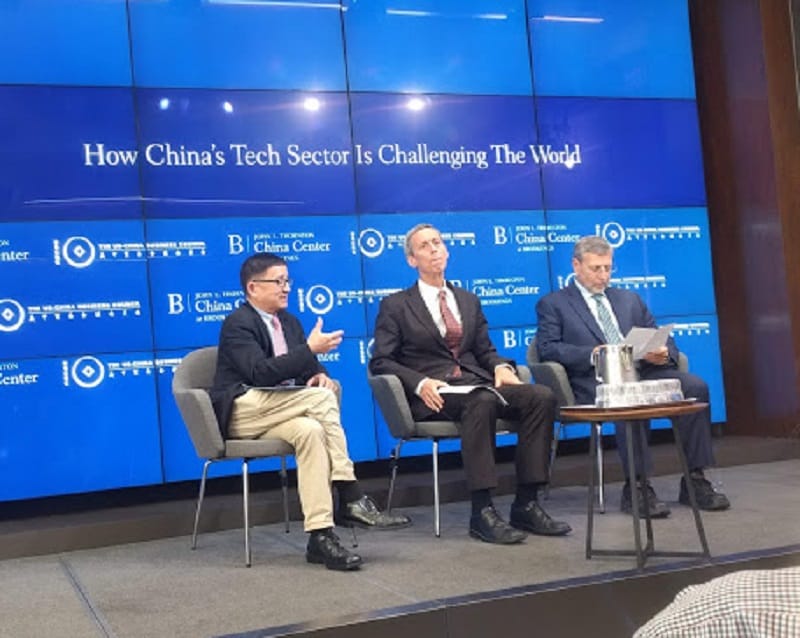China Experts Advise Political Leaders to Tone Down Disputes, Cite Benefits of Bilateral Trade with China
WASHINGTON, October 10, 2019 – While China’s technology sector appears to be global gaining momentum, experts at a Brookings Institution plan on Thursday said that the Chinese economy is not as prosperous as the U.S. makes it out to be. Forbes Columnist Rebecca Fannin recognizes that China tech comp

WASHINGTON, October 10, 2019 – While China’s technology sector appears to be global gaining momentum, experts at a Brookings Institution plan on Thursday said that the Chinese economy is not as prosperous as the U.S. makes it out to be.
Forbes Columnist Rebecca Fannin recognizes that China tech companies may have an unfair advantage by blocking Facebook and Google from their markets, as well as a lack of respect for intellectual property, and industrial policy subsidies from the government.
However, Chinese and Western companies are heavily integrated, she said. Chinese venture capitalists have built ideas on top of those of Silicon Valley entrepreneurs, and Western companies have started to mimic elements of Chinese ones.
Fannin added that in 2018, 31 Chinese companies filed initial public offerings at NASDAQ and NYSE. However, U.S. distrust of Chinese products has shifted China’s target market to primarily Southeast Asia and Israel.
U.S.-China Business Council President Craig Allen said that the interactions between American and Chinese companies is forming a dynamic tech ecosystem. But many issues of competition and cooperation remain up in the air because of the trade war between the two nations.
Indeed, both U.S. and Chinese political leaders are uncomfortable with the levels of integration in their critical infrastructure, he said.
The Chinese economy is growing only half as strongly as it did a few years ago, said David Dollar, senior fellow at the John L. Thornton China Center. The rate of Chinese production needs to rapidly accelerate in order to match that of the U.S., he said.
Moreover, Dollar added, China has a large private sector that owns 95 percent of patents. Yet its financial institutions are predominantly owned by the state, which can cause economic disbalance.
Dollar and Craig both think “decoupling,” or cutting off ties with China’s economy, is unwise.
American productivity growth would slow down significantly if it were disengaged with China, Dollar said. A better course of action would be to focus on reforming domestic infrastructure, education and immigration policies in order to improve innovation.
Both the American and Chinese governments are trying to pursue policy measures that incorporate decoupling, Allen said. However, accelerating America’s national security concerns will leave an echo that will have a noticeable affect on the other side.
If America decides to decouple, he said, it’s likely that Europe and Japan will gladly take over to bear the fruits of the Chinese economy.










